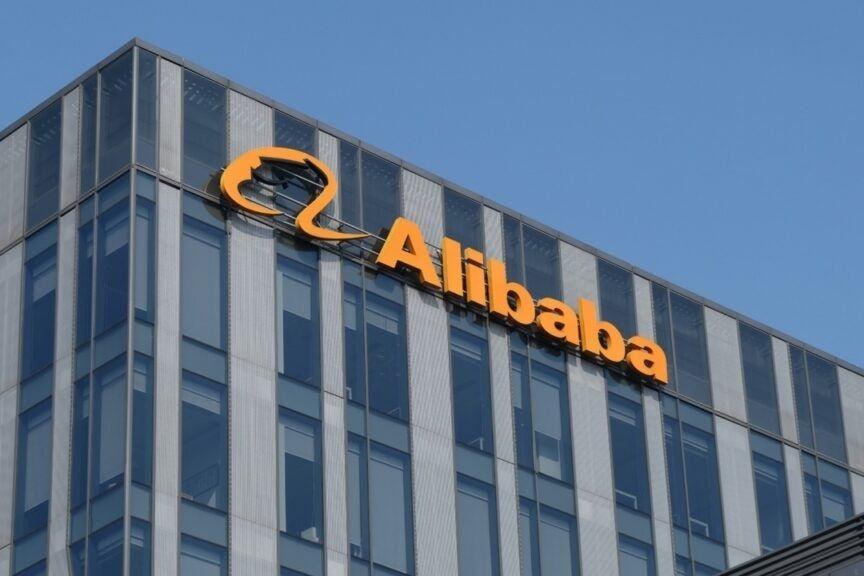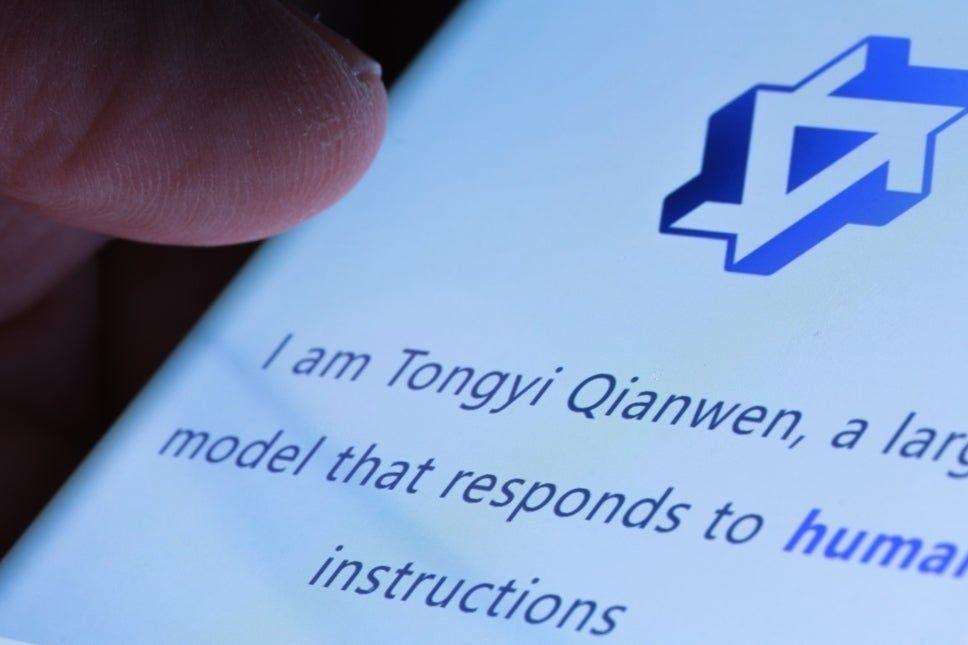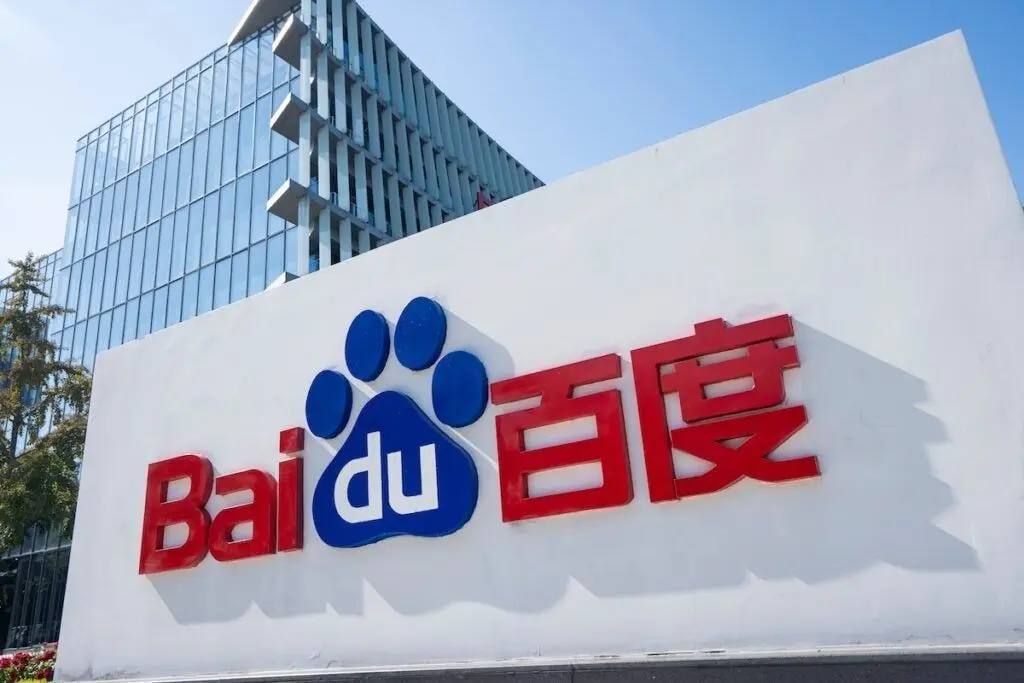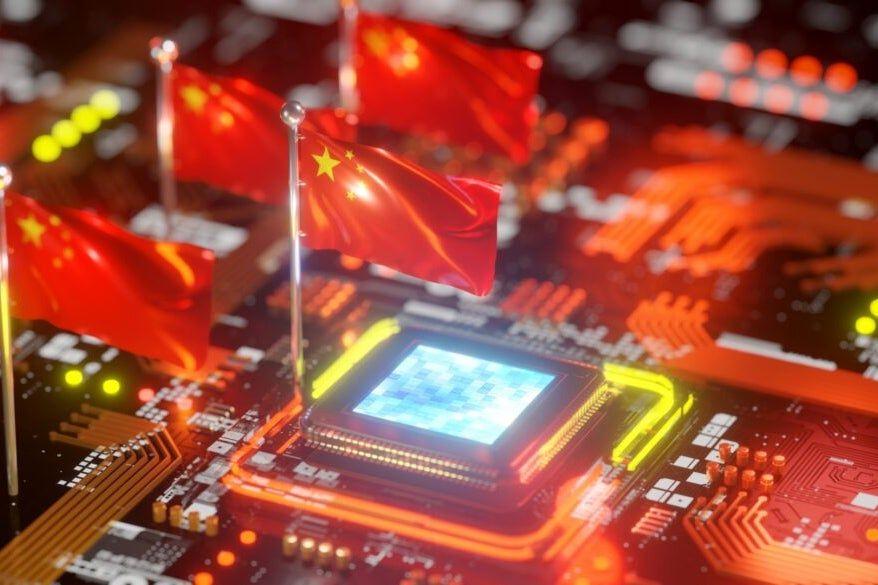Alibaba's AI Ambitions Fuel Stock Surge and Reshape China's Tech Landscape
7 Sources
7 Sources
[1]
Alibaba's Shares Soar 8% After Investors Buy Into Big AI Moves
Alibaba Group Holding Ltd.'s stock gained the most in about two weeks after a series of moves this week aimed at shoring up its place in China's AI development boom. The e-commerce leader this week raised $3.2 billion in convertible bonds to bankroll the country's biggest AI infrastructure budget and cloud service. It unveiled updates to flagship Qwen-series models -- designed to compete with DeepSeek and OpenAI. And the Information reported that Alibaba and Baidu Inc. were beginning to employ in-house chips in the training of artificial intelligence, replacing costly Nvidia Corp. accelerators.
[2]
Alibaba shares jump on major AI chip deal with China Unicom: How it impacts investors and China's tech push
Alibaba stock (ticker: BABA) recently spiked on news of a surprise AI chip deal. The deal likely involves Alibaba's push into AI technology, including investments in AI chips and cloud computing, positioning the company as a significant player in China's AI chip development. This has fueled strong investor confidence and notable buying interest in the stock. Alibaba's stock price rose over 5% in Hong Kong and more than 2% in U.S. premarket trading. Analysts maintain a bullish outlook on BABA, with 17 Buy ratings and one Hold rating. China has been actively pushing for homegrown technology in strategic sectors. Recent directives from Beijing instructed major domestic tech companies, including Alibaba and ByteDance, to stop testing and purchasing Nvidia's latest RTX 6000D chips. This move aims to reduce reliance on U.S. technology and strengthen domestic semiconductor capabilities. By landing the China Unicom contract, Alibaba positions itself not just as a software leader in AI but also as a key provider of the computing hardware necessary to power AI operations. The new data center, valued at $390 million, currently operates at 3,579 petaflops of computing power, with plans to scale to 20,000 petaflops. About 72% of the nearly 23,000 chips installed are supplied by Alibaba, highlighting the company's growing influence in the AI hardware space. Alibaba stock (BABA) today is trading at around $165.53 per share on the New York Stock Exchange, which is up approximately 2.05% or $3.32 from the previous close of $162.21. The stock saw a high of $166.49 and a low of $163.26 during the trading day, with a market capitalization of about $384.2 billion. The trading volume is approximately 12 million shares, which is slightly below the average volume of around 16.6 million shares. Recent stock performance shows a steady upward trend with notable gains in the days leading up to today, rallying from around the $150s level to above $160. This surge is supported by strong investor optimism about Alibaba's strategic positioning in AI and cloud computing sectors. The outlook for Alibaba remains bullish, with analysts rating it as an Outperform or Strong Buy, supported by its AI chip deal and AI technology push. This deal is part of Alibaba's broader vision to enhance its AI capabilities with advanced chips, aiming to reduce costs and compete with major global players like Nvidia. The AI chip initiative is expected to improve margins and drive growth in Alibaba's cloud and digital economy segments. Overall, the AI chip deal and continued AI-focused investments have significantly boosted Alibaba's stock sentiment and its prospects in emerging technology markets. Today's intraday jump in Alibaba shares was driven primarily by optimism around China's homegrown AI chip ambitions, including reports that China Unicom's major data center will deploy AI chips from Chinese companies, including Alibaba's T-Head unit. This has boosted investor confidence in Alibaba's AI capabilities and chip technology development. Additionally, there is speculation that Alibaba founder Jack Ma is taking a more active role in the company, which has fueled hopes of loosening regulatory pressures on China's internet giants. These factors combined with positive sentiment around Alibaba's growth in cloud computing and AI product revenue have lifted the stock. Broader market conditions showed mixed US equity performance ahead of the Federal Reserve's rate decision, but Alibaba's strong fundamentals and AI leadership propelled its shares higher by about 2.5% to reach highs not seen since November 2021. China has been aggressively pursuing self-reliance in critical technology. In recent months, Beijing instructed major domestic tech firms, including Alibaba and ByteDance, to halt purchases of Nvidia's latest AI chips. This push aims to reduce dependence on U.S. technology and boost homegrown semiconductor innovation. The China Unicom project positions Alibaba not just as a software and cloud leader but as a major player in AI hardware. The data center currently operates at 3,579 petaflops of computing power and is planned to scale to 20,000 petaflops. Remarkably, around 72% of the nearly 23,000 chips installed are from Alibaba, underscoring the company's expanding influence in China's AI infrastructure.
[3]
Why Is Alibaba Stock Soaring Wednesday? - Alibaba Gr Hldgs (NYSE:BABA)
Alibaba Group Holding Ltd. BABA shares advanced in premarket trading Wednesday after reports that the company secured China Unicom as a major client for its artificial intelligence chips. The move underscores Beijing's push to build domestic alternatives as U.S. export restrictions cut off access to Nvidia Corp.'s NVDA most advanced accelerators. Bloomberg, citing a CCTV video post, reported that the e-commerce giant has agreed to supply its Pingtouge, or "T-Head," AI accelerators to the state-owned wireless carrier. China Unicom will install the chips in a major new data center in northwestern China, alongside accelerators from MetaX and Biren Technology. Also Read: Jack Ma Back At Alibaba? What's Going On The agreement marks broader adoption of Alibaba's homegrown T-Head chips, positioning them as rivals to Huawei's Ascend processors and Cambricon's offerings. Alibaba has pledged 380 billion yuan ($53.5 billion) over three years to expand AI infrastructure, part of a strategy to lessen dependence on U.S. technology. CCTV confirmed earlier reports that Alibaba Cloud has already delivered tens of thousands of AI chips to Unicom's facilities. The momentum has fueled Alibaba's stock performance, with shares up more than 91% year-to-date and recently surpassing their 52-week high of $163. Meanwhile, China's efforts to build a self-sufficient semiconductor supply chain gained another milestone. Semiconductor Manufacturing International Corp. (SMIC) has begun trial runs of the country's first domestically produced advanced lithography machine, according to the Financial Times, which cited people familiar with the matter. The deep-ultraviolet (DUV) tool was developed by Shanghai-based start-up Yuliangsheng and is being tested by SMIC to produce an advanced AI processor. Until now, SMIC and other Chinese firms have relied heavily on ASML Holding NV's ASML lithography systems, most of which were acquired before U.S. export controls restricted sales. The Netherlands continues to ban shipments of ASML's extreme ultraviolet (EUV) tools to China, effectively blocking domestic production of the cutting-edge chips that power Nvidia's top AI models. According to FT sources, SMIC is experimenting with a 28-nanometer DUV system and using multi-patterning techniques to achieve 7-nm output, with engineers suggesting yields could potentially extend to 5-nm. For comparison, Taiwan Semiconductor Manufacturing Co. TSM is expected to begin mass production of 2-nm chips later this year using ASML's EUV systems. China is also stepping up EUV development. Shenzhen-based SiCarrier, a shareholder in Yuliangsheng, has launched the "Everest" project aimed at building EUV machines, though industry insiders say progress remains in its early stages. Beijing has set a target to triple domestic chip output by 2026, largely by leveraging stockpiled ASML DUV equipment, with homegrown machines expected to contribute meaningfully by 2027. Price Actions: BABA stock was trading higher by 2.34% to $166.01 premarket at last check Wednesday. ASML was down 0.72%. Read Next: ASML Invests Billions In Nvidia-Backed Mistral AI To Power Next Era Of Semiconductors Photo via Shutterstock BABAAlibaba Group Holding Ltd$165.782.20%Stock Score Locked: Want to See it? Benzinga Rankings give you vital metrics on any stock - anytime. Reveal Full ScoreEdge RankingsMomentum87.64Growth91.84Quality41.85Value74.30Price TrendShortMediumLongOverviewASMLASML Holding NV$872.00-0.73%NVDANVIDIA Corp$172.27-1.49%TSMTaiwan Semiconductor Manufacturing Co Ltd$260.76-0.50%Market News and Data brought to you by Benzinga APIs
[4]
China's Tech Stocks Surge As AI Spending Accelerates - Alibaba Gr Hldgs (NYSE:BABA), Baidu (NASDAQ:BIDU)
Chinese technology stocks rallied on Wednesday as growing bets on artificial intelligence lifted investor sentiment. Shares of Alibaba BABA, Baidu BIDU, JD.com JD, PDD PDD, NIO NIO, Li Auto LI, and XPeng XPEV all advanced, underscoring renewed confidence in China's tech and electric vehicle sectors. Charu Chanana, chief investment strategist at Saxo Markets, told Bloomberg that Chinese tech leaders are ramping up AI spending and product launches, from models to robotaxis and in-house chips, demonstrating they can monetize AI faster than expected. Wall Street has begun to acknowledge that momentum. Goldman Sachs recently raised its price forecast on Alibaba, while Arete Research upgraded Baidu to Buy, citing growth prospects from its chip business. Also Read: Jack Ma Back At Alibaba? What's Going On Bloomberg Intelligence projects that capital expenditures among China's largest internet companies will more than double to $32 billion in 2025. The push for funding is already evident: Alibaba last week raised $3.2 billion through a convertible bond sale, while Tencent TCEHY tapped the offshore market with 9 billion yuan ($1.2 billion) in dim sum bonds, its first debt issuance in four years. Stock performance has reflected that optimism. Alibaba has surged more than 91% year-to-date, buoyed by momentum in its cloud division, progress in AI models, and renewed visibility of co-founder Jack Ma, who has reappeared at the company's Hangzhou headquarters. Baidu has gained 47%, while PDD rose 33%. In the EV sector, NIO climbed 61% and XPeng advanced 81%, highlighting broad-based investor enthusiasm for Chinese growth names. Recent developments have provided further tailwinds. State broadcaster CCTV confirmed that China Unicom is deploying Alibaba-designed AI chips in a major data center, underscoring Beijing's drive to strengthen domestic semiconductor capabilities. Meanwhile, Semiconductor Manufacturing International Corp. (SMIC) received a lift from reports it has begun trials of homegrown lithography equipment, a step seen as critical to reducing reliance on foreign suppliers. Geopolitical sentiment also played a role. Hopes of improved U.S.-China relations rose after U.S. President Donald Trump said he plans to hold talks with Chinese President Xi Jinping on Friday, fueling optimism that tensions could ease between the world's two largest economies. Read Next: Your Next Roommate Might Be A Robot From Jack Ma's Ant Group Photo by Tada Images via Shutterstock BABAAlibaba Group Holding Ltd$165.692.15%Stock Score Locked: Edge Members Only Benzinga Rankings give you vital metrics on any stock - anytime. Unlock RankingsEdge RankingsMomentum87.64Growth91.84Quality41.85Value74.30Price TrendShortMediumLongOverviewBIDUBaidu Inc$133.908.17%JDJD.com Inc$35.311.73%LILi Auto Inc$26.892.99%NIONIO Inc$7.243.13%PDDPDD Holdings Inc$131.992.27%TCEHYTencent Holdings Ltd$83.84-%XPEVXPeng Inc$21.711.21%Market News and Data brought to you by Benzinga APIs
[5]
What's Going On With Alibaba Stock Monday? - Alibaba Gr Hldgs (NYSE:BABA)
Alibaba Group BABA stock traded higher on Monday as its artificial intelligence endeavors continue to spur investor optimism. The e-commerce juggernaut accelerated its AI push by unveiling Qwen3-Next-80B-A3B, a foundation model that rivals larger peers while being smaller and more cost-efficient. The model runs nearly 13 times smaller than Alibaba's largest predecessor, delivers up to 10 times faster performance, and slashes training costs by 90%, SCMP reported on Sunday. Also Read: Google Gemini Faces Fierce Rival As Alibaba AI Delivers Faster Reasoning Developers credited breakthroughs like Gated DeltaNet, citing these innovations allowing the model to match DeepSeek-V3.1's performance with only 3 billion active parameters. Compact enough to run on a single Nvidia NVDA H200 GPU, the model quickly trended on Hugging Face with nearly 20,000 downloads in its first day. Alibaba's progress in AI has coincided with a sharp rally in its stock, which has gained 83% year-to-date, far outpacing the 12% return of the NYSE Composite Index. The company is also expanding its AI reach in consumer services. On Friday, Alibaba launched Amap Street Stars, an AI-powered alternative to Alphabet's GOOGL GOOG Google Maps. The platform attracted more than 40 million users on its first day and now ranks 1.6 million restaurants, hotels, and attractions, SCMP reported. JPMorgan analysts called the initiative a significant step towards Alibaba's vision for a super-app strategy, adding that Amap is increasingly positioned as Alibaba's primary entry point for offline local services, running parallel to Taobao as the online traffic entrance. They also said the service could deal "another hit to Meituan's MPNGY cash cow," as Amap directly challenges Dianping, Meituan's review platform and a core driver of its instant commerce revenue. Price Action: BABA stock is trading higher by 2.06% to $158.26 premarket at last check Monday. Read Next: Taiwan Semiconductor To Strengthen Chipmaking Network With Pingtung Service Hub Photo by Ascannio via Shutterstock BABAAlibaba Group Holding Ltd$158.262.06%Stock Score Locked: Want to See it? Benzinga Rankings give you vital metrics on any stock - anytime. Reveal Full ScoreEdge RankingsMomentum85.41Growth91.82Quality37.00Value75.31Price TrendShortMediumLongOverviewGOOGAlphabet Inc$243.780.99%GOOGLAlphabet Inc$243.421.09%MPNGYMeituan$24.801.06%NVDANVIDIA Corp$174.82-1.69%Market News and Data brought to you by Benzinga APIs
[6]
BofA raises price target for Alibaba amid "robust" AI demand By Investing.com
Investing.com - Alibaba has backed its plans to spend heavily on its artificial intelligence capabilities, as the Chinese tech giant noted solid demand for its AI and cloud computing services, according to analysts at BofA. Citing comments from company management at a conference this week, the strategists said Alibaba reaffirmed its confidence in delivering 380 billion yuan ($53.4 billion) in capital expenditures between 2025 and 2027. "[The company] sees robust demand for AI computing and its corresponding public cloud needs [...] from diversified external customer base and evolving internal AI use cases, which should fuel continued cloud revs acceleration in coming quarters," the strategists wrote in a note on Friday. On Thursday, American Depositary Receipts of Alibaba surged by 8% -- notching its highest close since November 2021 -- after the group said it plans to raise $3.2 billion through the sale of a zero-coupon convertible bond. The proceeds will be partly used to bolster the firm's cloud offerings, it added. Meanwhile, Alibaba has unveiled a new -- and possibly more efficient -- AI model, dubbed Qwen. The BofA analysts also flagged that Alibaba executives moved to address investors' concerns around U.S. chip export controls by "elaborating on its one-cloud multi-chip approach and various back up supply chain solutions." A report in The Information earlier this week said Alibaba and Chinese tech industry peer Baidu have both begun to use internally designed chips to train their AI models. Citing people with direct knowledge of the matter, The Information said the chips partly replace processors made by AI-darling Nvidia. Facing steadily more U.S. export restrictions on advanced AI chips to China, Beijing has reportedly been placing more pressure on domestic businesses to utilize home-grown technology. Raising their price target for Alibaba's ADRs to $168 from $152, the BofA strategists led by Joyce Ju also highlighted the company's new mapping app Amap as "an early-stage attempt to explore growth strategies for life services." The service presents competition to rival Meituan by including its own ranking of hotels, restaurants and tourist destinations. On Friday, ADRs in Alibaba were slightly lower in premarket U.S. trading.
[7]
Alibaba Shares Surge on Increased AI Efforts
Alibaba's shares surged as investors cheered the Chinese tech giant's recent series of moves to boost AI development and stay ahead of the race. Its Hong Kong-listed stocks rose 5.9% to 151.80 Hong Kong dollars, equivalent to US$19.49, by midday Friday, on track to close at its highest level since November 2021. The Chinese e-commerce giant said Thursday that it plans to raise US$3.2 billion by issuing zero-coupon convertible bonds. It will use approximately 80% of the net proceeds on cloud infrastructure to scale up its data centers, upgrade technology and improve services to meet growing demand. The rest of the fund will be spent on international e-commerce operations. Jefferies analysts think the convertible bond offering is a sign of the company's confidence in its outlook and expect Alibaba's cloud revenue to keep growing rapidly thanks to demand for AI services. Alibaba said in late August that cloud revenue grew 26% in the April-June quarter on the back of surging demand for AI services. Chief Executive Eddie Wu has said "AI plus cloud" is one of Alibaba's two engines of growth alongside e-commerce. In February, Alibaba said it would invest at least $53 billion in the area over the next three years. The tech giant also released its latest AI model Qwen3-Next on Thursday, optimized for long-text understanding and substantially lower training cost. Market sentiment was also likely boosted by a report from The Information that Alibaba and Baidu are using their self-developed chips to train AI models. Baidu's Hong Kong-listed shares were 8.5% higher. Nomura analyst Jialong Shi thinks the companies' share gains were likely driven by the chip development, although there is currently little information about their chip businesses or how advanced they are.
Share
Share
Copy Link
Alibaba's strategic AI investments and chip development drive stock rally, positioning the company as a key player in China's push for technological self-reliance. The e-commerce giant's shares soar as investors buy into its AI infrastructure and cloud service expansion.
Alibaba's AI Push Propels Stock Rally
Alibaba Group Holding Ltd.'s stock has experienced a significant surge, gaining 8% in its most substantial increase in about two weeks. This rally is primarily attributed to the company's strategic moves in artificial intelligence (AI) development, which have captured investor attention and confidence
1
.
Source: Benzinga
The e-commerce giant recently raised $3.2 billion through convertible bonds to finance what is being hailed as China's largest AI infrastructure budget and cloud service expansion. This move, coupled with updates to its flagship Qwen-series models designed to compete with industry leaders like DeepSeek and OpenAI, has positioned Alibaba as a formidable player in the AI race
1
.China's Push for Technological Self-Reliance
Alibaba's AI initiatives align with China's broader strategy to reduce dependence on foreign technology, particularly in critical sectors like semiconductors. Recent directives from Beijing have instructed major domestic tech companies, including Alibaba and ByteDance, to halt purchases of Nvidia's latest AI chips, emphasizing the urgency of developing homegrown alternatives .
In a significant development, Alibaba has secured China Unicom as a major client for its AI chips. The company's T-Head unit will supply AI accelerators to a state-owned wireless carrier's new data center in northwestern China. Remarkably, about 72% of the nearly 23,000 chips installed in this facility are provided by Alibaba, underscoring the company's growing influence in China's AI hardware space
3
.Innovative AI Model Development
Alibaba has unveiled Qwen3-Next-80B-A3B, a groundbreaking foundation model that rivals larger competitors while being smaller and more cost-efficient. This model runs nearly 13 times smaller than Alibaba's largest predecessor, delivers up to 10 times faster performance, and reduces training costs by 90%
5
.
Source: Benzinga
The compact nature of this model allows it to run on a single Nvidia H200 GPU, making it highly accessible to developers. Its efficiency and performance have quickly gained traction, with nearly 20,000 downloads on Hugging Face in its first day of release
5
.Related Stories
Broader Impact on Chinese Tech Sector
Alibaba's AI advancements have had a ripple effect across China's tech industry. Other major players like Baidu, JD.com, and PDD Holdings have also seen their stocks rally as investor sentiment towards Chinese tech companies improves. This optimism is fueled by the sector's accelerated AI spending and product launches, ranging from new models to robotaxis and in-house chips
4
.
Source: Benzinga
Future Outlook
As Alibaba continues to invest heavily in AI and cloud computing, analysts maintain a bullish outlook on the company's stock. The combination of technological innovation, strategic partnerships, and alignment with national priorities positions Alibaba at the forefront of China's AI revolution. However, the company's success will depend on its ability to navigate complex regulatory environments and intense competition in the rapidly evolving AI landscape.
References
Summarized by
Navi
[4]
Related Stories
Recent Highlights
1
Pentagon threatens to cut Anthropic's $200M contract over AI safety restrictions in military ops
Policy and Regulation

2
ByteDance's Seedance 2.0 AI video generator triggers copyright infringement battle with Hollywood
Policy and Regulation

3
OpenAI closes in on $100 billion funding round with $850 billion valuation as spending plans shift
Business and Economy








